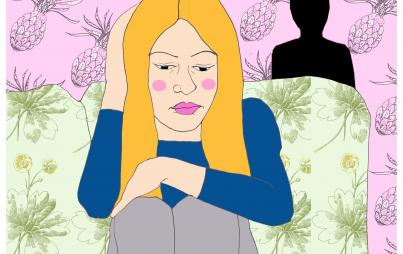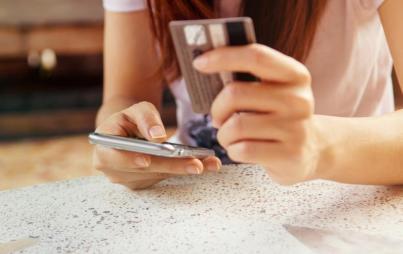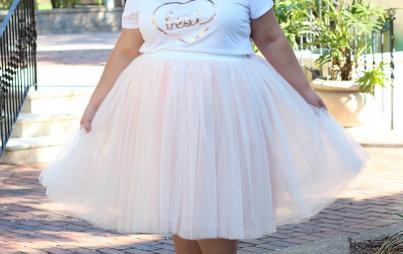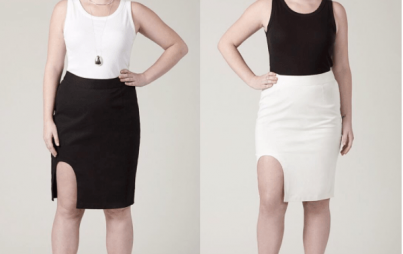
shopping. addict.
Dear Winona,
My relationship with shopping has recently become unhealthy. Lunch break shopping trips have turned into a daily occurrence, and I’ve started using retail therapy as a cure-all for any time I’m feeling weird or unhappy. I’m not in crazy debt or anything (yet), but I’m starting to feel a little out of control. Any tips for breaking this cycle before it gets really bad?
Signed,
Retail Therapy Addict
Dear RTA,
A few years ago I got a call from my brother that my great uncle had died. We weren’t particularly close, but I’d always admired the man, and no one had even told he was sick. My brother informed me that my uncle had been ailing for a while — it seemed everyone in my family knew but no one had told me. I felt hurt and sad and confused, so I got in my car and I drove to Nordstrom Rack.
I felt like a robot trained to discount-shop whenever I got the urge to feel human emotions. I felt nothing as I grabbed boots, a dress, and a silk blouse and took them to the register. My avoidance technique was terrifyingly effective. It wasn’t until I got home and set down the bag full of stuff I’d just bought that I realized what I’d done, and how involuntary and compulsive it had felt. Right then and there I decided I needed to examine my shopping habits and make some changes.
Shopping is an easy addiction to acquire. We are bombarded with messages that tell us our lives will be perfect if we buy the right stuff. Shopping is fun and easy and the moment of making a purchase gives you a happy high. If that wasn’t enough, cute things have never been cheaper or more accessible, so you can shop A LOT before it becomes a problem financially.
If you’re feeling uneasy about your shopping habits, listen to your gut. There’s no downside to examining your habits and trying to get to a healthier, happier place. Here are some strategies that helped me break the compulsive shopping cycle:
Figure out why you shop.
For me, shopping was a way to numb out and avoid difficult emotions. For others, it’s a way to feel good about themselves, calm down, get alone time, reward themselves, fix a bad day, or create some kind of fantasy life (i.e., “if I buy this leather jacket I’ll instantly be cool and adventurous!”). Reflect on your true motivations for shopping, and then . . .
Find something else that meets that need.
The next time you get the urge to hit the mall, stop yourself, take a breath, and ask yourself, “What do I actually need right now?” I forced myself to call my best friend whenever I felt like shopping, because what I actually needed was connection, and a safe space to talk about my feelings. You might realize that you shop as a form of self-care, and a bubble bath and a good book would be much more effective.
Quit shopping, cold turkey, for a month.
Challenge yourself to a month of no shopping, and don’t tempt yourself with a stroll through your favorite shopping district or a little window shopping at the outlet mall. Get through 30 days and then reassess — how did it feel to not have your time/bank account/identity defined by your shopping habits? Was it scary? Freeing? Weird? Challenging? A little bit of all of the above? For me, this was an extremely empowering exercise. It taught me a lot about myself and forced me to find other ways to fill my spare time and deal with my emotions. Whenever I feel old shopping habits creeping back in, I do another 30-day no-shopping challenge, just to reset my resolve and show myself that I can.
Assess your current closet.
Chances are your shopping habits have netted you a closet stuffed with clothes, most of which you rarely wear. Spend a Saturday cleaning out your closet. Keep pieces that you truly love, sell or donate the ones you don’t, then assess what you have left and make a list of things you need. Not things you want. Things you actually need. Make a vow to yourself that you will set a budget for these pieces and save up until you can afford to buy quality clothes that you truly love. Make these purchases mindful, intentional, and patient. See how much better it feels to shop this way, when you’re not only in control of your buying decisions, but you are slowly, intentionally creating a wardrobe you love.
Impose a “sleep on it” rule.
If impulsive purchases are a problem for you, give yourself a new shopping rule: Even if you think you’re totally, absolutely in love with something at the store, don’t buy it. Go home, sleep on it, and if you still are just as excited about the next day, you can buy it. This is a great way to reality-check yourself and make sure you’re shopping mindfully.
Block online shopping sites and unfollow envy-inducing Instagrammers.
We all have them: The online boutique tab we open and scroll through when we’re bored at work; the Instagrammers we follow that post new, lust-worthy outfits every single day. Remove these temptations from your life, at least for the first month. You can always add them back in later, but you right now, they’re not helping.
Get some help.
There is never any shame in seeking professional help, especially when you’re starting to feel like a behavior or thought pattern is becoming compulsive. There are many root causes of compulsive shopping that are much deeper and more complex than they might seem. A rad therapist can help you sort it all out.








